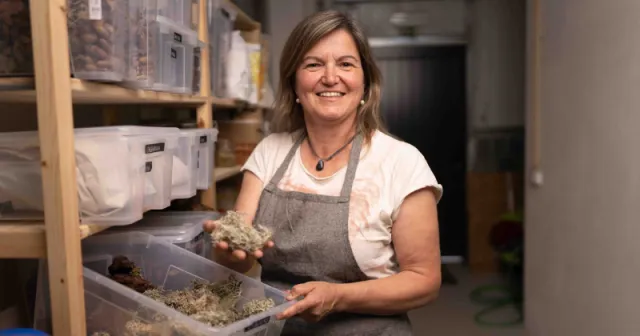Strategies for adult learners with learning difficulties to become active and knowledgeable citizens
The goal most teachers of adult students have is to help our students become active citizens and to help them understand the society in which they live. How we encounter students’ current knowledge of society varies in the different fields we teach and we meet our students differently according to our different target groups. Also, the ways we approach, and in a classroom setting deal with, the skills required for active citizenship, are as many as there are teachers. In teaching an adult student with learning difficulties the idea of “building citizenship” can sometimes seem difficult to implement.
In adult education, we encounter students with a range of learning difficulties, such as intellectual disability, ADD/ADHD, autism spectrum disorder, social phobia, speech impairment and other forms of functional variations.
Depending on the challenges the students face, the activities to enhance and reinforce active citizenship are addressed with means such as digital learning through social media and different online learning tools and learning sites. Discussions about society in an informal and tolerant classroom climate also help students address the questions they have not previously dared or known to ask or explore.
Classroom activities can be a way to open up to a new world of engagement in society. Society has for some previously been an insurmountable hurdle of rules, regulations, unspoken ways to interact, cultural notions of what is right and wrong, difficult words and expressions, connections to history that is unknown and hard to understand and so on. Society can be a pretty intricate web of rather loose or tight connections and being better equipped to untangle that web is valuable for most people. Better understanding one’s rights in society, as well as one’s obligations, gives a new dimension to being a citizen.
Building citizenship to become a more active citizen can greatly enhance the students’ sense of coherence ( SOC). Enhancing a person’s understanding of and involvement in society can also be the stepping stone to becoming more independent. That applies to a large extent to students who have immigrated and are somehow new to the country. Perhaps their learning difficulties have not previously been openly addressed and perhaps present society in the new country is so different that new possibilities but also new challenges may have arisen.
Designing lessons that give every student the possibility to access its content regardless of learning disability is a way that also brings on a sense of our individual functional variations being just that – variations. Learning material and resources (digital or other) that are available to everybody, and not exclusively to the ones most in need, reduce the differences and create a feeling of equality or sameness among the students. The variations among the students in this way become the assets of the learning situation since the learning situation becomes more accessible to everyone - with or without learning difficulty.
Classroom situations can also be the way to practice valuable digital skills required for actively taking a greater part in society, as well as learning how to access information and critically analyze it.
Functional variations and the way we address and meet these are crucial to students’ accepting of their learning disabilities. Open dialogue and addressing the importance of self-awareness is something really worth spending time on in mentoring students with learning difficulties, who oftentimes have spent a lot of time compensating for their difficulties and sometimes trying to hide them as well. Taking part of society, in one's own way, then becomes a goal in itself. But before that can be done, one has to dare to acknowledge one´s hurdles and lift up one’s strengths. On top of that, students with intellectual disabilities, or other learning difficulties, benefit greatly from having learned strategies to detect when they are exposed to different power structures, such as ableism. Learning to stand up for oneself, being more grounded in one´s own skills and one´s value, becomes a worth-wile bonus in teaching about citizenship.
In almost every subject we can incorporate aspects of citizenship. We can address different issues in different ways, using different modalities so that the variation itself strengthens students’ possibilities to succeed.
Carefully planning how to incorporate citizenship-building in the existing plan for the course and giving the students the study plan in order for them to be able to prepare and plan their own work is also a recipe for success. The plan is especially important for the student who has challenges in learning, in order to be able to prepare in whichever way best for that particular student’s success in learning.
Building citizenship does not have to involve classroom activities alone. Cooperating with a guidance counsellor and inviting different groups/institutions into the classroom or visiting them where they are, presents a path to broaden input and understanding for what are important citizenship-skills. Additionally, by implementing cooperative strategies into the learning processes, students learn to rely on their own capacity and to cooperate in a symmetric structure of power and not only in a hierarchical one. This is a valuable skill in society.
One recipe for a teacher to help students to build citizenship-skills can be:
- Universal learning design and universal learning resources in the classroom
- Practising valuable skills needed in society
- Create a tolerant classroom climate where questions can be addressed
- Help students work on self-awareness
- Planning how to incorporate citizenship-building in the classroom setting




